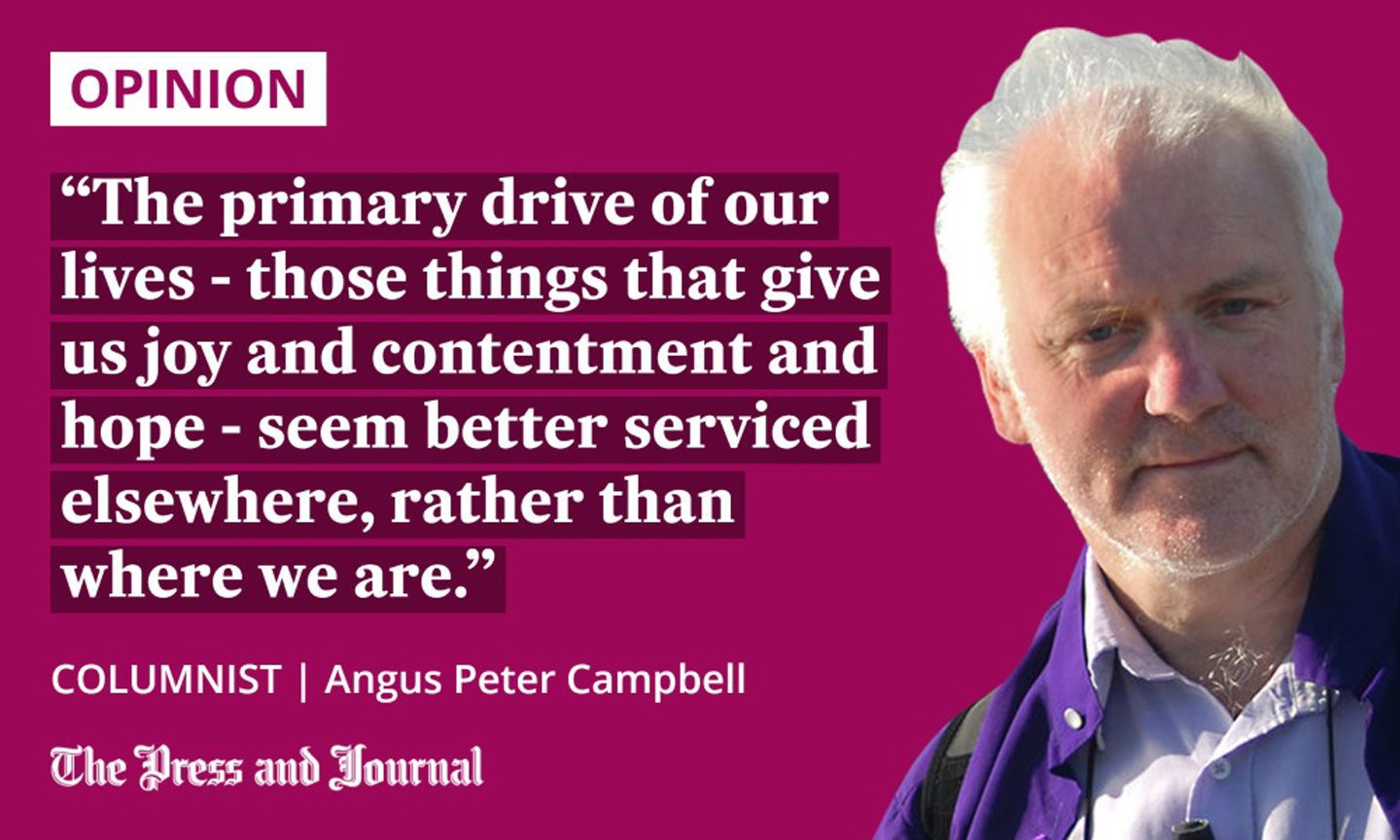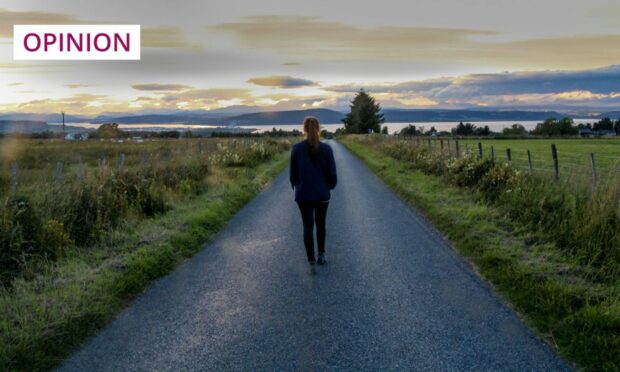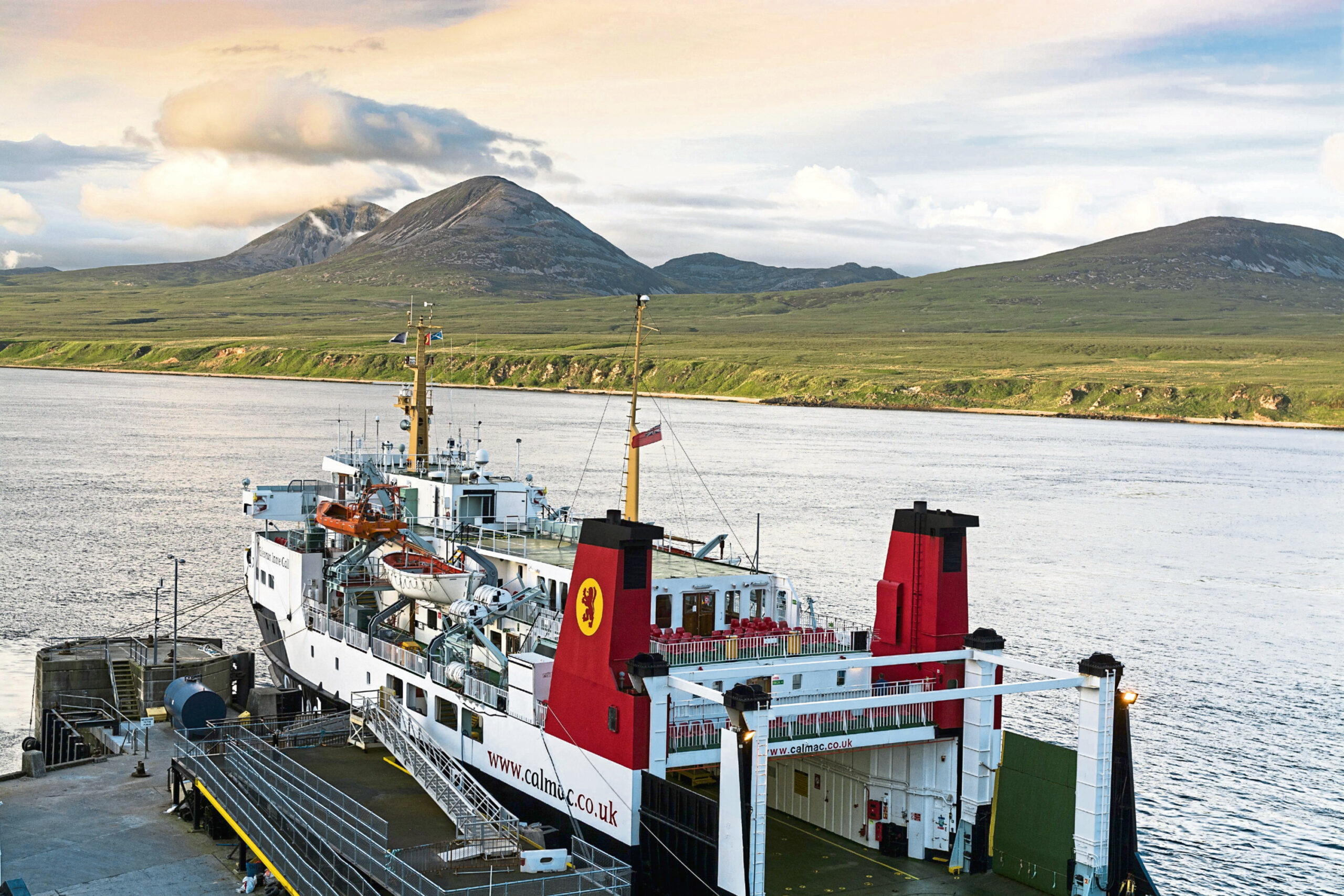What if young Highland and Islanders have become disconnected and see no reason to stay? We must give them back their power, writes Angus Peter Campbell.
A recent Highlands and Islands Enterprise survey of over 4,000 young people living in the area revealed a startling statistic: that 47% of respondents between the ages of 16 and 29 said they plan to leave the Highlands and Islands within the next five years. That’s almost half of our young people intending to migrate.
Now, I realise that young people have always come and gone. Goodness, our songs and poems are chock-full of exile: young men (some forced by the King’s shilling and others only too happy to don the kilt and glengarry) heading off in their thousands to war. The herring girls, their laughter like a sprinkling of salt, sailing east to the Broch and south to Lowestoft and Great Yarmouth.
The thousands cleared on the Marloch and the Metagama and all the other ships to Canada and America and Australia. All those young men going as shepherds to the Pampas in Argentina, and the sailors going whaling in South Georgia, and the students heading off to Aberdeen and Glasgow, nurses and joiners and teachers and poets and dreamers heading south to the streets of London, all paved with gold.

In other words, we have always lost our young people for the familiar cocktail of economic, social, geographic and political reasons: those who were cleared, those enlisted, those who went to college and university, those who went off to work in offices and fields and factories for a better life, those who fled to escape from the weather or their community or their past or future.
And, of course, we’re not alone in exile. We are part of the great dispossessed throng (now newly and brutally stigmatised as “invaders”) fleeing wars and famine, cultural and linguistic oppression, filled with hopes and dreams of a better land across the water. The great diaspora of Armenians, Russians, Syrians, Irish, Africans…
Connectivity (of all kinds) is important
What’s interesting about the new survey is not so much the old fact of young people saying they’ll be leaving, but the reasons given: lack of housing, inadequate access to healthcare (particularly mental health care) and lack of connectivity. By which is meant the internet. Though I find the word connectivity fascinating, maybe revealing a sort of underlying explanation for it all.
What if the price of housing and the lack of 4G internet and inconsistent ferry services and lack of well-paid jobs with a good career structure are only secondary issues, and the primary reason for leaving is that you have become disconnected and see no reason to stay?
Because the primary drive of our lives – those things that give us joy and contentment and hope – seem better serviced elsewhere, rather than where we are, where it’s always raining and windy, and the ferry is forever broken, and we can’t just pop out to the cinema or the theatre or to a whole backstreet of cafes for a cappuccino whenever we want.
That’s what poverty takes away from you: not the cup of coffee itself, or the visit to the theatre, or the house, but the very possibility – the idea – of getting them
Because the possibility of something is often greater than the thing itself. I have been poor enough in my time not to be able to afford a cup of coffee, and then, when I got some money, the last thing I actually wanted to do was to go and have a cup of coffee. I just liked the idea that I could if I wanted.
That’s freedom: the possibility that you can do something. And (believe me) that’s what poverty takes away from you: not the cup of coffee itself, or the visit to the theatre, or the house, but the very possibility – the idea – of getting them.
Fix problems and provide reasons to stay
So, perhaps the answer to rural depopulation has to do with creating a culture of possibilities. To create a primary culture where young people believe they can afford to rent or buy a home if they want, without the dread (or certain knowledge) that some incomer who has sold a property near London will outbid them.
That their place, and language – their identity – can be shaped by themselves in their remarkable environment, without being constantly portrayed as a “remote”, marginalised and declining community.
The difficulty is creating that primary culture in a world given over to a secondary dynamic, where everything is purchased in. Where life elsewhere feels better than where you are. Faster and quicker, too. Deliveries from Domino’s and the Global Energy Stadium round the corner. A place where your umbrella doesn’t fly away in the wind.
Of course, we need to fix the reasons why young people say they leave, from providing good housing to better ferry services. But, we also need to provide better reasons for them to stay.
Where anything is possible, from being able to buy a house to having a well-paid job, from speaking Gàidhlig to young and old, to singing on the machair. A place of enchantment, as it were, as in a story.
Angus Peter Campbell is an award-winning writer and actor from Uist



Conversation